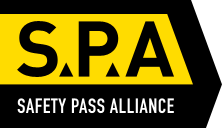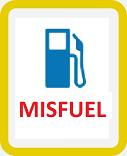A safety passport training scheme pioneered in the underground railway sector by a division of Metronet has contributed to a dramatic impact on accident rates.
The division responsible for upgrading underground stations and maintaining civil assets says that the safety passport scheme – an essential part of Metronet’s health and safety initiatives – has led to a 75 per cent reduction in accident statistics in only 18 months.
The passport scheme has been developed by leading UK health and safety training company, Safety Pass Alliance Ltd., based in Rugby, Warwickshire.
SPA has developed passport schemes for a range of industry sectors. They involve a core health and safety module, followed by a second module dealing with risks and issues specific to the industry.
The civils and stations arm of Metronet’s Asset Renewal activities has embraced the scheme designed specifically for contractors working on underground railways.
Workers who successfully complete the training course can prove their awareness of basic principles of health, safety and environmental protection in the maintenance of underground railways.
“We introduced the passport scheme about three years ago and around 1,500 employees attended in the first 18 months,” said Metronet’s safety and environmental services manager for stations and civils, Ewan Campbell-Lendrum.
“Since then the scheme has really taken off and in the last 18 months the total number of trainees has gone up to 9,000 – which includes short-term contractors on site. At the same time the number of accidents has been reduced by 75 per cent.”
He said that the Accident frequency rate (AFR) – the standard measure of accidents that are required to be reported to the Health and Safety Executive – had fallen from 0.4 to 0.1 (per 100,000 hours worked on the project) in only 18 months.
“To put this into context comparable figures for the rail industry are 0.25 and for the construction industry 0.4. This achievement is particularly notable as it has been achieved despite the fact that the majority of our site workers are new to the underground environment.
“Safety passport is an essential component of the measures that have helped us achieve this dramatic reduction and sits alongside more traditional initiatives such as supervision and risk assessment.”
He added that in one area of Metronet’s work the accident rate was zero – there had not been an accident in over 18 months – representing over three-and-a-half million hours worked.
“We have now decided that everyone who comes to work at one of our sites must attend and pass a safety passport course.”
Ewan said that to pass a candidate had to successfully complete the course that included training on risks associated with moving trains, electricity through the rails, working in confined spaces, working on temporary structures, and asbestos.
“The environment is also a significant issue and our people are trained on this aspect. As most of our work is carried out at night we have over 110 legal agreements with councils on the steps we need to take to control noise and the passport is an essential measure to ensure we comply with these agreements night-in night-out,” said Ewan.
Ray Gibbs, SPA’s managing director, said that the success of safety passport within Metronet reflected the progress that had been made on health and safety in other business sectors.
“In the food and drinks sector companies such as Nestle have reported a 68 per cent reduction in accidents,” said Ray.
“The Passport scheme benefits the bottom line of both the client and contractor as it streamlines the site induction process. It also provides the peace of mind that only a common, recognised and validated standard of training can provide.”



















